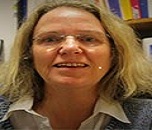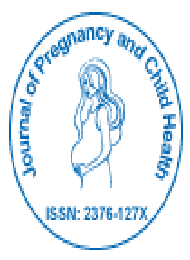Theme: Theme: Exploring The Importance of Nurses & Midwives
NURSING MIDWIFERY 2024
The 6th International Conference on Nursing, Midwifery, and Women's Health, scheduled for October 24-25, 2024, in Paris, France, is a premier event bringing together global healthcare professionals. This conference aims to foster advancements, share innovative practices, and discuss challenges in nursing, midwifery, and women's health. It provides a unique platform for practitioners, researchers, and educators to exchange knowledge, network, and explore collaborative opportunities. Through keynote speeches, workshops, and presentations, attendees will gain insights into the latest research and developments in these fields. Join us in Paris to contribute to shaping the future of women's healthcare on a global scale.
For an event or conference focusing on the theme of "Nursing, Midwifery, and Women's Health," you'll want to ensure that all communications, from the call for papers to the event announcements and registration invitations, clearly highlight the significance and breadth of this theme. Here's how you might articulate the theme's importance and scope in various contexts:
Event Announcement
Join us for a pivotal conference dedicated to "Nursing, Midwifery, and Women's Health," where we delve into the latest research, practices, and innovations in these critical fields. This event aims to bring together healthcare professionals, researchers, educators, and students to share knowledge, foster collaboration, and promote advancements in nursing, midwifery, and women's health. Through keynote speeches, workshops, and panel discussions, participants will explore a wide range of topics from clinical practice to policy, education, and global health challenges affecting women.
We invite submissions for the upcoming conference on "Nursing, Midwifery, and Women's Health." We welcome papers and presentations that address the latest findings, innovative practices, and challenges in these fields. Topics of interest include but are not limited to maternal and neonatal health, women's health across the lifespan, public health initiatives, and the role of nursing and midwifery in improving healthcare outcomes. Share your research, insights, and experiences with a diverse audience of professionals committed to making a difference in women's health.
Register now to be part of an essential gathering of minds in "Nursing, Midwifery, and Women's Health." This conference offers a unique opportunity to engage with experts and peers, gain new perspectives, and contribute to the advancement of healthcare for women. Whether you are a seasoned practitioner, a researcher, or a student entering the field, your participation is crucial in shaping the future of women's health. Secure your spot today and join us in making a positive impact.
Our program features a dynamic range of sessions on "Nursing, Midwifery, and Women's Health," designed to inspire and inform. Highlights include cutting-edge research presentations, panel discussions on global health issues, workshops on clinical skills and leadership, and special sessions on mental health, reproductive rights, and access to care. Prepare to be engaged, educated, and empowered to contribute to the well-being of women at all stages of life.
Conclusion
For each communication, ensure clarity, relevance, and engagement to effectively convey the importance of the theme and encourage active participation. Tailor the message to suit the audience and the specific format, whether it's an email, website content, or social media post, to maximize impact and response.
Advanced Practice Nursing is a pivotal component within the healthcare landscape, focusing on the crucial roles that nurse practitioners, clinical nurse specialists, nurse anesthetists, and nurse midwives play in delivering comprehensive care. This field emphasizes the importance of advanced clinical skills, in-depth knowledge, and a holistic approach to patient care, ensuring that individuals and communities receive the highest standard of health services. Advanced practice nurses are at the forefront of integrating evidence-based practice, pioneering healthcare innovations, and advocating for patient-centered policies.
Clinical Midwifery is a vital healthcare profession dedicated to providing holistic, culturally sensitive, and personalized care to women, newborns, and families across the childbirth continuum. This field emphasizes the importance of evidence-based practices, respectful maternity care, and the promotion of natural childbirth processes, where possible. Clinical midwives play a crucial role in antenatal education, labor and birth support, postnatal care, and breastfeeding guidance, focusing on the physical, emotional, and psychological well-being of the mother and child. They advocate for the woman's right to choose her birth setting and support, ensuring informed consent and shared decision-making throughout the pregnancy and childbirth experience.
Women's Health Advocacy is a critical movement aimed at promoting equitable access to healthcare services, education, and information for women across all stages of life. This field addresses the unique health needs of women, including reproductive health, maternal care, mental health, and prevention of diseases disproportionately affecting women. Advocates work to influence public policy, drive research, and raise awareness on issues such as gender disparities in healthcare, the importance of comprehensive sexual and reproductive rights, and the need for gender-sensitive health services. Women's health advocates collaborate with communities, healthcare providers, and policymakers to dismantle barriers to healthcare access, including socioeconomic challenges, cultural stigmas, and legal restrictions.
Pediatric Nursing is a specialized area of nursing dedicated to providing holistic care to children from infancy through adolescence. This discipline encompasses health promotion, disease prevention, and the management of health conditions in pediatric patients, addressing both physical and emotional needs. Pediatric nurses work in a variety of settings, including hospitals, clinics, schools, and community centers, offering support not just to the child, but also to families, advocating for their well-being and acting as a liaison between them and the healthcare system. They play a pivotal role in educating parents and caregivers on child health maintenance, vaccination schedules, and nutrition, while also providing compassionate care for sick children. Pediatric nurses are trained to communicate effectively with children and their families, ensuring that care is age-appropriate, culturally sensitive, and tailored to each child's individual needs.
Maternal and Neonatal Health focuses on the health and well-being of women during pregnancy, childbirth, and the postnatal period, as well as the health of newborns. This critical area of healthcare aims to ensure that both mothers and their babies have access to high-quality medical care that enables safe pregnancies and deliveries, while minimizing risks and complications. Key aspects include prenatal care to monitor and promote the healthy development of the fetus, skilled care during childbirth to manage labor and delivery safely, and postnatal care to support the health and recovery of the mother and the newborn. Efforts in this field also emphasize the importance of breastfeeding, nutritional support, and the early identification and treatment of any health issues in both mothers and infants.
Gerontological Nursing is a specialized field of nursing that focuses on the care of older adults, addressing their unique health needs to promote quality of life and maintain their independence for as long as possible. This discipline involves assessing the health status of elderly patients, managing chronic conditions, providing palliative care, and supporting end-of-life needs. Gerontological nurses play a crucial role in educating older adults and their families on healthy aging, disease prevention, and managing the physical and cognitive changes that often accompany aging. They also advocate for the rights of older adults, ensuring they receive respectful and compassionate care. Given the complexity of health issues faced by the elderly, such as multiple chronic diseases, mobility challenges, and sensory impairments, gerontological nursing requires a comprehensive and holistic approach.
Mental Health Nursing is a specialized field dedicated to caring for people of all ages experiencing mental illness or distress. Mental health nurses play a critical role in the assessment, diagnosis, and treatment of psychiatric disorders, working closely with individuals to develop personalized care plans that address both mental and physical health needs. Their work encompasses a wide range of interventions, from administering medications and psychotherapy to providing crisis intervention and support for families. These nurses operate in various settings, including hospitals, community clinics, residential facilities, and patients' homes, offering empathy, support, and advocacy to help patients navigate their recovery journey. A key aspect of mental health nursing is building trusting relationships with patients, enabling effective communication and engagement in therapeutic activities.
Public Health Nursing is a practice focused on protecting and improving community health by emphasizing prevention, wellness, and health equity. Public health nurses work at the forefront of community outreach, education, and disease prevention programs, addressing broad health issues such as infectious diseases, environmental hazards, and chronic conditions. They assess the health needs of communities, develop and implement health plans, and advocate for policies that ensure access to care for all populations, particularly the underserved and vulnerable.
Reproductive Health and Family Planning:
Reproductive Health and Family Planning focuses on providing individuals and couples with the knowledge and means to make informed choices about having children and maintaining reproductive health. This field encompasses a wide range of services, including contraception, fertility treatments, prenatal and postnatal care, and screenings for reproductive health conditions. Health professionals in this area work to ensure that everyone has access to safe and effective family planning methods, comprehensive sexual education, and care during and after pregnancy. The goal is to empower people to plan their families and prevent unintended pregnancies, thereby improving health outcomes for women, children, and families. Reproductive health and family planning are critical components of public health, contributing to reduced maternal and infant mortality rates, healthier families, and stronger communities.
Global Health and Nursing addresses health issues that transcend national boundaries, focusing on improving health outcomes and achieving equity in health for all people worldwide. Nurses in this field contribute to global health initiatives through direct patient care, research, policy advocacy, and capacity building in low-resource settings. They work on a variety of issues, including infectious disease control, chronic disease management, maternal and child health, and emergency response to health crises. Global health nurses collaborate with international organizations, local health workers, and communities to develop and implement health programs that are culturally appropriate and sustainable.
Nursing Education and Workforce Development:
This area focuses on enhancing the skills, competencies, and abilities of nurses to meet the evolving needs of healthcare. It involves developing innovative educational programs, continuing professional development opportunities, and leadership training to prepare a diverse nursing workforce capable of delivering high-quality care. Strategies include integrating evidence-based practice, technology, and interprofessional education to ensure nurses are well-equipped to lead in healthcare settings.
Midwifery in Low-Resource Settings:
This track highlights the challenges and opportunities for midwives providing care in areas with limited access to healthcare resources. It emphasizes sustainable practices, community engagement, and innovative solutions to improve maternal and neonatal outcomes. The focus is on strengthening the midwifery workforce, advocating for policy support, and enhancing the capacity of midwives to deliver quality care under challenging conditions.
Oncology Nursing involves specialized care for cancer patients, from diagnosis through treatment and beyond. Nurses in this field support patients in managing the physical and emotional effects of cancer and its treatment, coordinate care among multidisciplinary teams, and advocate for patient needs. They also play a key role in cancer prevention, screening, and education initiatives.
Cardiovascular Nursing focuses on patients with heart diseases and conditions, providing critical care, rehabilitation, and chronic disease management. Cardiovascular nurses help patients understand their conditions, manage symptoms, and implement lifestyle changes to improve heart health. They are essential in preventing heart disease and improving outcomes for those with cardiovascular conditions.
This specialty involves providing rapid assessment and treatment to patients in critical conditions due to accidents, injuries, or acute illnesses. Emergency and trauma nurses work in high-paced environments, making quick decisions to save lives and prevent further injury. They are skilled in triage, resuscitation, and crisis management.
Nursing Informatics integrates nursing science with information management and analytical sciences to improve healthcare delivery. It focuses on using technology to enhance patient care, streamline workflows, and improve health outcomes. Nurses in this field develop and utilize electronic health records, patient monitoring systems, and data analysis tools.
Ethical Issues in Nursing and Midwifery:
This area explores the complex ethical dilemmas nurses and midwives face, such as patient autonomy, informed consent, and end-of-life care. It emphasizes the importance of ethical decision-making, respect for patient rights, and professional integrity in providing compassionate care.
Focusing on the unique aspects of women’s mental health, this track addresses issues such as depression, anxiety, and trauma in the context of women's lives. It highlights the importance of gender-sensitive approaches in assessment, treatment, and support for mental health and well-being.
Integrative Health and Wellness:
Integrative Health and Wellness combines conventional medicine with complementary and alternative therapies to treat the whole person. This approach emphasizes prevention, wellness, and the integration of mental, physical, and spiritual aspects of health to achieve optimal well-being.
Leadership and Management in Nursing:
This track focuses on developing leadership and management skills in nurses to enhance healthcare delivery and outcomes. It covers strategic planning, resource management, team leadership, and quality improvement, preparing nurses to lead effectively in diverse healthcare settings.
Sexual Health Education in nursing involves providing patients with information on sexual health, prevention of sexually transmitted infections, and safe sexual practices. It aims to empower individuals to make informed decisions about their sexual health and relationships.
This field addresses the role of nursing in the care and support of individuals affected by substance abuse. Nurses provide screening, intervention, and referral for treatment, and support recovery, emphasizing a nonjudgmental and holistic approach to patient care.
Environmental Health and Nursing:
Environmental Health and Nursing focuses on the impact of environmental factors on health and the role of nurses in promoting environmental health. It includes addressing issues such as pollution, toxic exposures, and climate change, and advocating for healthy environments.
Nurse Practitioner Models of Care:
Nurse Practitioner Models of Care explore the expanded roles of nurse practitioners in providing primary and specialty healthcare. This includes diagnosing and managing illnesses, prescribing medications, and implementing evidence-based interventions to improve patient outcomes.
This track emphasizes the mental health challenges women may face during pregnancy and the postpartum period, such as depression and anxiety. It focuses on screening, prevention, and treatment strategies to support maternal mental health.
Nursing and Midwifery Regulation:
This area covers the standards, policies, and regulations governing nursing and midwifery practice. It aims to ensure the professionalism, safety, and effectiveness of nursing and midwifery care through licensure, accreditation, and continuing education.
Chronic Illness Management in nursing involves supporting patients in managing long-term health conditions, such as diabetes, heart disease, and chronic pain. Nurses educate patients on self-care practices, medication management, and lifestyle modifications to improve quality of life.
Healthcare Quality and Safety:
This track focuses on improving the quality and safety of healthcare services through evidence-based practices, patient safety initiatives, and quality improvement projects. Nurses play a key role in identifying and addressing safety risks to prevent errors and enhance patient care.
Cultural Competence in Healthcare:
Cultural Competence in Healthcare emphasizes the importance of understanding and respecting cultural differences in patient care. Nurses learn to provide culturally sensitive care that addresses the unique needs and preferences of diverse patient populations, improving communication, trust, and health outcomes
Market analysis for Nursing, Midwifery, and Women's Health involves examining several key areas including demand for services, workforce trends, technological advancements, regulatory changes, and the impact of global health challenges. Here's an overview of some critical aspects:
Demand for Services
Growing Populations: The demand for nursing, midwifery, and women's health services is rising due to increasing global populations and the emphasis on maternal and child health. Aging populations also contribute to a greater need for healthcare services, including nursing care.
Women's Health Focus: There's a growing awareness and advocacy for women's health rights, leading to expanded services and programs focused on reproductive health, maternal care, and conditions predominantly affecting women.
Workforce Trends
Shortages: Many regions face shortages of qualified nurses and midwives, affecting healthcare delivery and patient outcomes. Efforts to address these shortages include educational incentives, workforce development programs, and policy reforms to attract and retain talent.
Specialization and Advanced Practice: There's a trend towards specialization within nursing and midwifery, with more professionals pursuing advanced practice roles. This includes nurse practitioners, clinical nurse specialists, and certified nurse midwives, who play critical roles in healthcare delivery.
Technological Advancements
Digital Health: The integration of technology in healthcare, such as telehealth, electronic health records (EHRs), and mobile health apps, is improving access to care and patient monitoring, especially in women's health.
Innovative Practices: Technological advancements are enabling new practices in nursing and midwifery, including virtual consultations and remote monitoring, enhancing prenatal and postnatal care.
Regulatory Changes
Policy Reforms: Changes in healthcare policies, including those related to licensing, practice scope, and reimbursement, are impacting the roles and responsibilities of nurses and midwives. There's a trend towards recognizing and expanding the scope of practice for advanced practice nurses and midwives.
Global Standards: International efforts to harmonize education standards and professional qualifications are influencing the mobility and recognition of nursing and midwifery professionals across borders.
Global Health Challenges
Pandemic Impact: The COVID-19 pandemic highlighted the critical role of nurses and midwives in responding to health crises, underscoring the need for robust public health systems and emergency preparedness.
Health Equity: Addressing disparities in healthcare access and outcomes remains a priority, with a focus on reducing maternal mortality rates in low-resource settings and ensuring equitable healthcare services for all women.
Market Opportunities
Education and Training: Increasing demand for specialized nursing and midwifery services opens opportunities for educational institutions to offer targeted programs and continuing education.
Healthcare Innovation: Startups and healthcare organizations can develop new technologies and services aimed at improving nursing care, midwifery, and women's health outcomes.
Challenges
Resource Allocation: Ensuring adequate resources and support for nursing, midwifery, and women's health services in the face of budget constraints and competing healthcare priorities.
Workforce Well-being: Addressing issues of burnout, work-life balance, and mental health among nurses and midwives is critical for sustaining the workforce.
In conclusion, the market for Nursing, Midwifery, and Women's Health is dynamic, with significant opportunities for growth and innovation. However, addressing workforce challenges, leveraging technology effectively, and responding to regulatory changes are crucial for meeting the evolving healthcare needs of populations globally.
Keynote Speakers: Renowned experts from around the world will share groundbreaking insights into nursing, midwifery, and women's health, highlighting innovative practices and research advancements.
Workshops: Interactive workshops led by industry leaders, focusing on practical skills, emerging technologies, and interdisciplinary approaches in healthcare.
Research Presentations: Diverse sessions showcasing the latest studies and findings in nursing, midwifery, and women's health from leading researchers and practitioners.
Networking Opportunities: A platform for professionals to connect, exchange ideas, and foster collaborations across disciplines and borders.
Panel Discussions: Engaging discussions on pressing issues facing women's health, policy implications, and the future of nursing and midwifery.
Innovations in Healthcare: Exploration of cutting-edge technologies and methodologies revolutionizing patient care and healthcare delivery.
Global Health Perspectives: Insights into international health challenges and strategies for improving women's health worldwide.
Professional Development: Sessions dedicated to career growth, leadership skills, and educational advancements for healthcare professionals.
Cultural Exchange: A unique opportunity to experience the rich cultural heritage of Paris while discussing global health care practices and perspectives.
Sustainability in Healthcare: Discussions on sustainable practices in healthcare settings, focusing on environmental, economic, and social aspects.
Conference Highlights
- Nursing Research
- Nursing Education
- Midwifery
- Pediatric Nursing
- Midwifery Care
- Military Nurses
- Midwifery Areas of Practice
- Surgical Nurse
- Midwives in Maternal Care
- Emergency Nursing
- Midwifery Nursing Practice
- Neonatal Nursing
- Midwifery Skills
- Critical Care Nursing
- Cardiac Nurse
- Labor and Delivery Nurse
- Patient Safety
- Ambulatory Care Nurses
- Forensic Nursing
- Registered Nurse
- Traditional Nursing
To share your views and research, please click here to register for the Conference.
To Collaborate Scientific Professionals around the World
| Conference Date | October 24-25, 2024 | ||
| Sponsors & Exhibitors |
|
||
| Speaker Opportunity Closed | |||
| Poster Opportunity Closed | Click Here to View | ||
Useful Links
Special Issues
All accepted abstracts will be published in respective Our International Journals.
- Journal of Pregnancy and Child Health
- Journal of Advanced Practices in Nursing
- Reproductive System & Sexual Disorders: Current Research
Abstracts will be provided with Digital Object Identifier by











